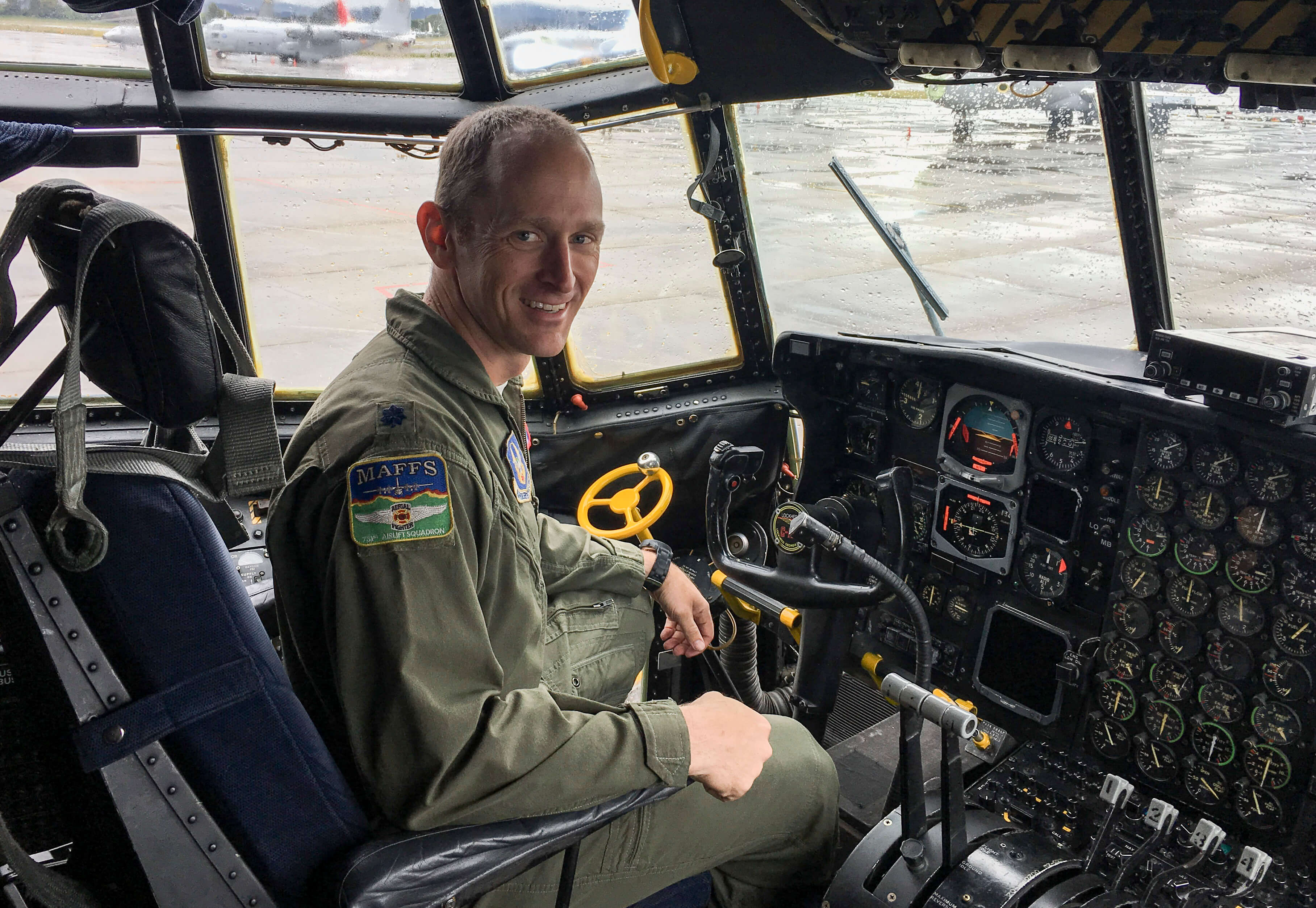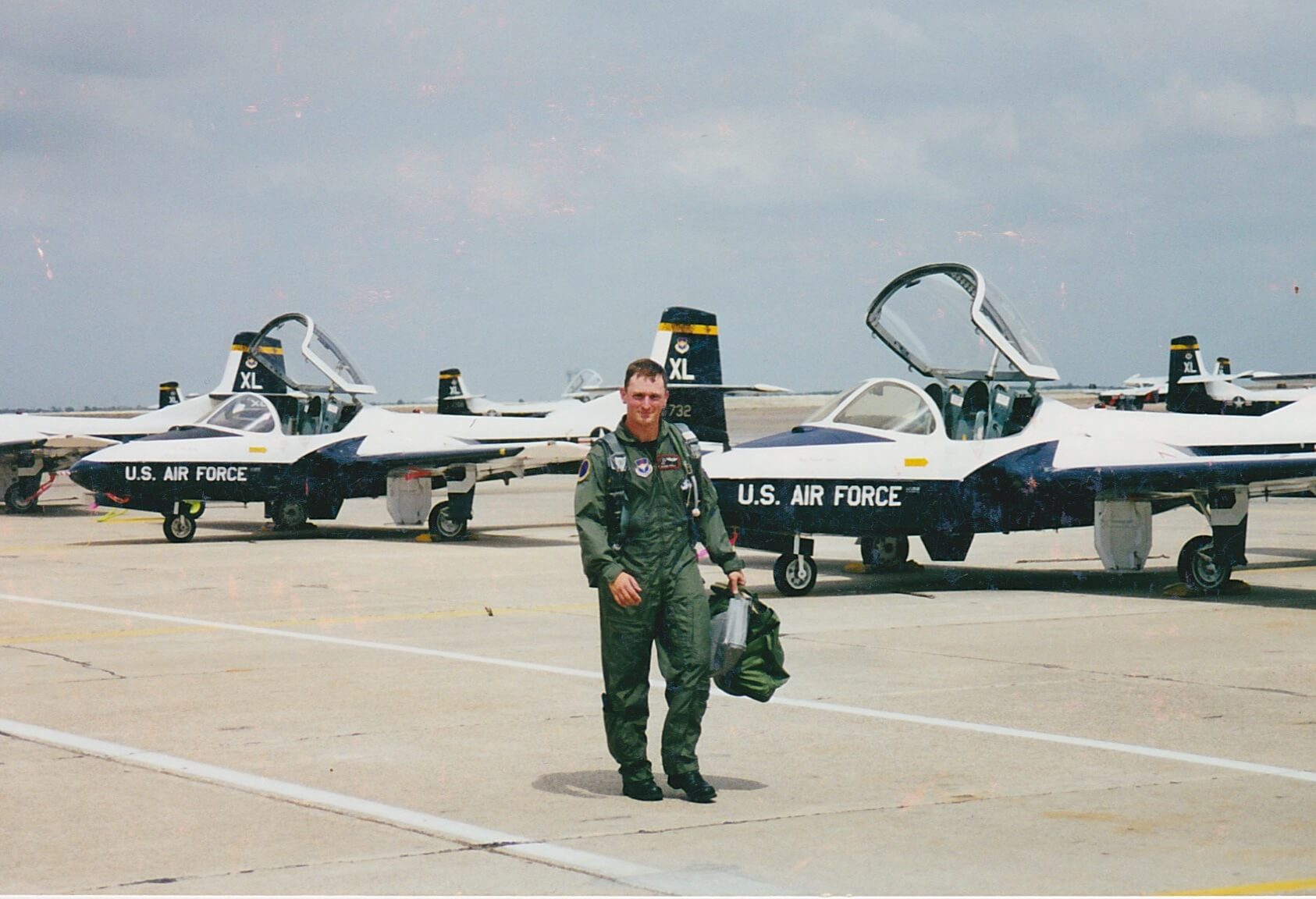’99 Academy grad credits Academy airfield with changing his life

Story by Jennifer Spradlin, Aug. 28, 2019
U.S. AIR FORCE ACADEMY, Colo. — Twenty years into his career as an Air Force aviator, Lt. Col. Richard Pantusa firmly believes two things: aviation is a team activity, and no team is successful without trust.
He credits his experience at the Air Force Academy Airfield for introducing him to these concepts and changing the direction of his career and ultimately, his life.
“I came to the Air Force Academy expecting to have a career in research and development [as an engineer], but my exposure to the aviation programs at the Academy after my freshman year and during my sophomore year motivated me and inspired a love of aviation that remains 20 years later,” he said.
Pantusa is a C-130 pilot and director of operations for the 731st Airlift Squadron, a Reserve unit at Peterson Air Force Base, Colorado. In addition to supporting global contingency operations, the 731st supports the Modular Airborne Fire Fighting System (MAFFS) C-130 special mission.
His first exposure to aviation outside travel aboard a commercial airliner was during the freefall program. He was struck by the professionalism and unit cohesion of the personnel at the airfield. The experience introduced him to a new level of trust in others and himself.
“I was 19-years-old, a parachute strapped to my back, riding in a Twin Otter somewhere out over the Academy grounds. I had been through all the training; I was deemed ready, but when the door opened, and they sent the first cadet out – I was fearful,” he said. “But when I got to the door and the tap to go, I went, and it was a bigger payoff than anything since because I learned that the training worked. I could trust the training, and I could trust myself to perform in a stressful environment.”
He said all Air Force missions require a complex web of trust and coordination across specialties and even agencies. For Pantusa, that trust is based on strict adherence to standards, which he also learned during those months at the Academy airfield.
“The standards are high because the stakes are high, even at the Academy,” he said. “There is a way to do things right, and I think learning that at the Academy helped me at undergraduate pilot training and beyond.”
Pantusa encouraged cadets to take advantage of the rare opportunities at the airfield across its three airmanship programs to gain exposure to aviation as they consider future career possibilities.
“Try it, this is something you can do, you have all the necessary skills,” he said. “Find out if it’s right for you, and if not, seek out another opportunity because there are so many critically important careers out there in the Air Force.
